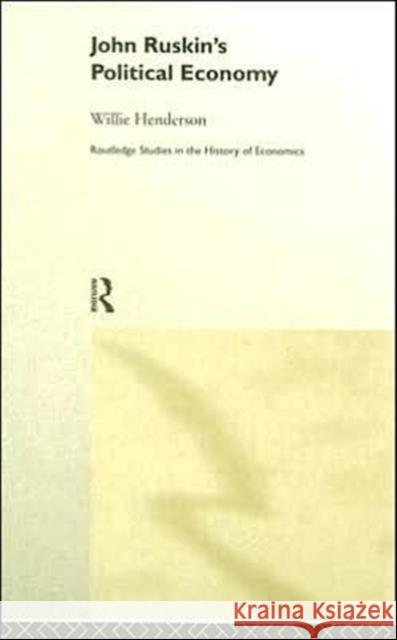John Ruskin's Political Economy » książka
John Ruskin's Political Economy
ISBN-13: 9780415200677 / Angielski / Twarda / 1999 / 224 str.
John Ruskin's Political Economy
ISBN-13: 9780415200677 / Angielski / Twarda / 1999 / 224 str.
(netto: 929,10 VAT: 5%)
Najniższa cena z 30 dni: 881,54
ok. 16-18 dni roboczych.
Darmowa dostawa!
This volume offers a reading of John Ruskin's economic and social criticism, based on recent research into rhetoric in economics in the late 1990s. Willie Henderson uses notions derived from literary criticism, the rhetorical turn in economics and more conventional approaches to historical economic texts to reevaluate Ruskin's economic and social criticism. By identifying Ruskin's rhetoric, and by reading his work through that of Plato, Xenophon, and John Stuart Mill, Willie Henderson reveals how Ruskin manipulated a knowledge base. Moreover in analysis of the writings of William Smart, John Bates Clark and Alfred Marshall, the author shows that John Ruskin's influence on the cultural significance of economics and on notions of economic well-being has been considerable. Far from being mad, Ruskin attempted a methodological / scientific critique of political economy. He fixed on ideas of natural laws, economic man and the prevailing notion of value to point out gaps and inconsistencies in the system of classical economics. Though he wrote vigorously against the idea of formal systems of thought, some of his work has implications for the future development of economic analysis.











